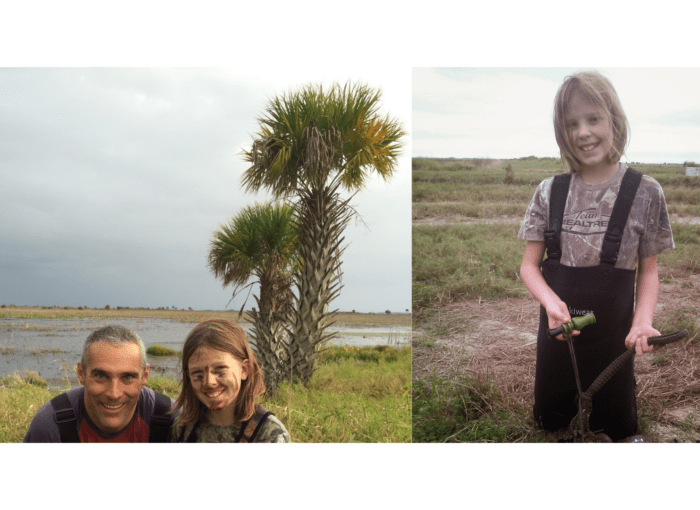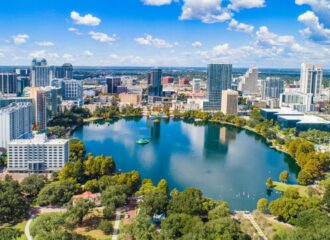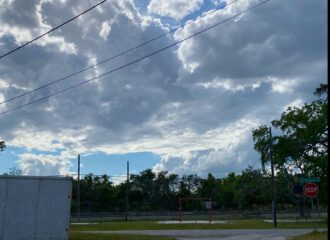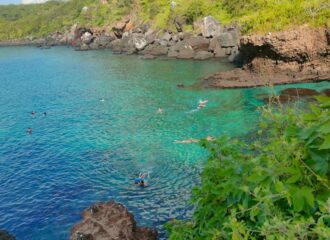by McKenna Slaughter
As the daughter of an outdoorsman, I was raised duck hunting. These excursions, or “weekend
vacations” as I called them, were the highlight of my early childhood. A few times a year, my dad
would check me out of school early on a Friday. We would drive down to the Fellsmere
Reservoir, 4,189 acres of protected land, which allowed for hunters to congregate and hunt small
volumes of state-sanctioned wildlife.
We camped out, sleeping in his truck and huddled under blankets from the sharp cold or sticky
heat, sometimes running the battery for a few minutes during the night to alleviate the brunt of
our weather-inflicted woes. Then, at 3:30 am, our alarms went off and we shambled out, groggy
but excited, to go claim our spots.
There was a gathering of all of the hunters attending that weekend, and spots were drawn at
random. Then, we would all load onto a rickety old trailer, towed by a pickup truck, as they drove
us all around to our individual plots of swamp. The smell of oil-based face paint and the sound
of plastic decoys rattling together always soothed me on this trip, even as the bumpy road
threatened to buck me off the trailer and into the Florida wilderness.
Eventually, it would come time to depart and my father, towering above me, would lead the way
through the reservoir waters. We hunted in waders, special garments that keep you warm and dry during the hours spent in the swamp. Waders end at your chest, and if you allow them to fill up with water, they will often drag you under. When my dad first told me of this possibility, I looked down into the still water as we shuffled along, wondering if anyone would ever find me if I vanished beneath the murky depths. I imagined the crunch crunch crunch of sticks and leaves under my feet were bones, from wildlife or humans or something else entirely. I had a very active imagination at this age.
Being so immersed in nature, you learn to trust your senses. There are many dangers in Florida
– alligators, of course, but also aggressive wild hogs, and otters that would steal a shot duck
before a hunter could make their way to retrieve it. Because of this, staying alert is crucial.
When you’re carrying a 20-pound backpack, and it’s so dark you can barely see your own hands
in front of your face, you learn to rely on sound. Eventually, you feel so in tune with the wild you
become a part of it, swaying and breathing together. Once the sun comes up and your joints
begin to warm back up, it is time to trek into the waters and hunt.
When I started going hunting, I was too small to even carry a rifle with me, coming along for the
experience rather than the main event. Eventually, once I got big enough, my dad let me try. The
weight of the gun, on top of the snacks and supplies I already carried, was almost unbearable. I
complained about it all day.
The hunt itself was slow, and often boring. Mostly, it was standing around and waiting for game
to fly overhead, hearing the echoes of far-off gunshots from other hunters. I was growing
jealous, and exhausted, when our chance game. A flock of Mottled ducks swooped overhead.
My dad pointed them out, and I shot.
I had barely any practice shooting at this point, beyond target practice with cans in my
grandparents’ Georgia backyard. My movements were some combination of instinct and luck – I
didn’t even know my shot had connected until I heard my dad whooping in celebration, moving
to collect our bounty before the duck even hit the ground.
When we finally made it there, and collected the duck, the reality of what I had done set in. I felt
guilty to have cut the life of this creature short, but also proud to have succeeded. I held the
creature in my hands, looked into its eyes, and told it thank you for its sacrifice. When I looked
up, my dad was already moving, back into our patch of brush where we could hide and take
more shots.
Once the sun was reasonably in the sky, and the rest of the world was waking up, the hunt was
over. We made our way back, my bag and my heart weighing a little heavier. When we brought
the duck home, my dad brought me to the backyard. There, he showed me how to harvest the
feathers, which would become the duck feather pillows I slept on. I watched the knife
slide under the skin, separating bones, organs, flesh. I watched as my dad collected the edible
parts of the bird, to make into jalapeno duck poppers and stew.
I never went hunting again after that trip. The act of pulling the trigger had been too much for
me, and I felt tremendous guilt. Looking back now, though, I think of my dad – how he grew up in
Georgia, hunting squirrels and deer in his parents’ backyard in Georgia. How he learned to use
each part of the animal, refusing to let anything go to waste. To us, wasting the animal would
defeat the entire point of going.
I felt a connection to Florida in my time in the wilderness – I moved with it, breathed with it,
became a part of it – if only for a moment. I understood its duality. Florida has this natural,
untamable, frightening beauty, so often overshadowed by the beaches and the tourists and the
concrete.
My time hunting was memorable, of course, but it also allowed me to feel the pull of wild Florida,
the deep swampy wet and the vast, flat expanses. The wildlife, equal parts beautiful and
frightening. I think the powerful, off-putting qualities of Florida, the work that must be done to
experience it, only make its call stronger.
I think this terrifying beauty can be found all across Florida, not just in Fellsmere. It won’t be
hunting for everybody – maybe it’s a trail, a beach, a cave, or a spring. Maybe it’s Orlando or
Miami or Jacksonville or Tampa. I can’t say where you will find it. I just know that it’s out there,
and once you find it, once you breathe it in, it will be a part of you forever.





